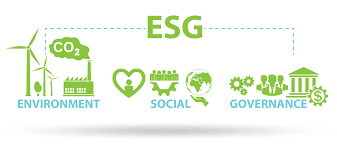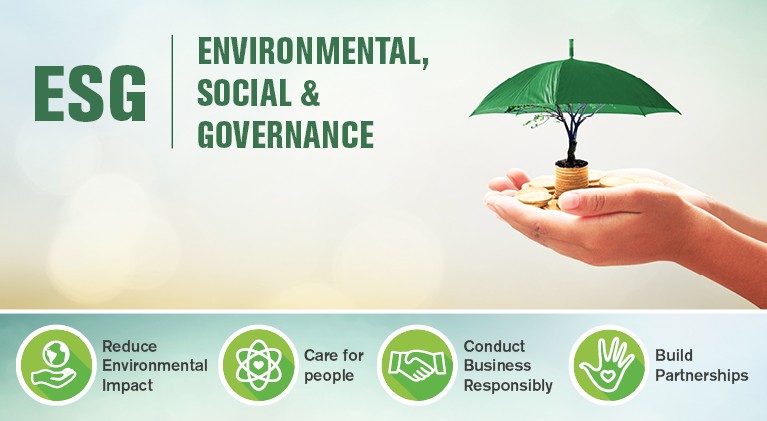Fund managers facing identity crisis amid rising ESG sophistication

Investment firms need to clearly define their ethical investing proposition as investors develop stronger preferences.

By Mark Northway,
Sparrows Capital
Asset managers are undergoing an identity conundrum over so-called ethical investing as the debate among investors becomes more sophisticated.
Interest in environmental, social and governance (ESG) investing took off like a jet-fuelled rocket as the coronavirus pandemic spread across the globe, with a record $51bn (£37.6bn) surging into sustainable US funds alone in 2020.
Fund managers will have accumulated assets simply by waving the acronym ESG in front of their investors. But as the market hits saturation point, genuine differentiation is now required.
This is because a part of the investor base – small now but highly likely to grow – holds the view that true ESG funds can only be run by ESG-focused houses.
Investment managers won’t be able to sit idly by here; the way they run their entire businesses might soon need to change.

Honest appraisal
ESG might mean different things to different people, but there is an element of science behind it, or at least broad agreements through data as to what ESG is and is not.
If one takes the MSCI All World index, it has 1,557 companies in it. But its ‘socially responsible investing’, or SRI, sibling comprises just 373 businesses.
This clearly illustrates that a global equity fund and an ESG global equity fund will have different risk levels, different sector concentrations, and different geographical exposures.
Many investment firms may have simply told investors that they have put an ‘ESG overlay’ on to their existing funds. But doing so fundamentally changes the make-up of a fund, something that investors are potentially becoming increasingly alive to.
Fund managers often overstate the actions they are taking to integrate ESG into their investments. Deutsche Bank’s asset management arm, DWS, is reportedly being probed by the US Securities and Exchange Commission on this very issue.
Looming decisions
The rising call from a vocal minority of investors seems to be that true ethical investors should only consider funds from investment managers that solely tread the ESG path.
 But ethical investing is a spectrum, and different approaches are warranted at different points on that spectrum.
But ethical investing is a spectrum, and different approaches are warranted at different points on that spectrum.
For highly specialised social impact funds that back start-up enterprises and look to add value through deep engagement and intervention, it certainly makes sense for investors to select a specialist impact manager.
But, for most investors, impact funds are unlikely to represent the core of their investing activity. The bulk of their portfolio is likely to be deployed using more conventional ESG funds that invest more broadly across the markets, which taking account of ESG risks through screening and weighting and through responsible stewardship.
Here, classic investment discipline and analysis are the primary skills required. Ethical parameters are set by the investor according to a belief set, and it is for the fund manager to ensure that these are fully respected while designing and implementing balanced, diversified strategy.
At Sparrows, we don’t believe that mixing an ESG approach with factor investing within the same portfolio to be best practice due to the lack of data around the interactions between the two methodologies.
Ethics vs profits

Returns are important, and it’s true that listed companies deemed as ‘ESG-friendly’ have performed remarkably well in the past two years.
But this stellar turn was largely driven by the pandemic, a backdrop to markets that hopefully won’t be repeated any time soon.
Fund managers need to carefully consider how they position their businesses from here, and what they tell investors about potential returns if they only back ‘good’ companies.
An ESG-driven approach could mean investors miss returns from so-called ‘sin’ stocks, and crucially, from their transformation into ‘good’ stocks.
Investing in an oil company might be seen as ‘bad’ now, but what about one that’s genuinely working hard to overhaul its business model in a bid to embrace new forms of energy?
Is it better to invest in it once it’s become a ‘good’ stock, or might that be too late?
For the time being, investors might be best served by having a core and a satellite portfolio, with the former staying relatively close to the broad market, and latter housing their pure impact plays.
Regardless of the route investment managers take, they need to clearly define how they are approaching responsible investing. A confused or inadequate proposition won’t rub with investors for much longer.

Mark Northway is investment manager at Sparrows Capital. The views expressed above are his own and should not be taken as investment advice.
At Ethical Offshore Investments, we have a significant bias towards growth type funds with a focus towards investing into Sustainable type businesses.
When investing into these types of fund, we will always get access to the lowest charging version of this fund available on the relevant platform, which ensures that more of the growth stays in our clients pockets.
If you would like to learn more about this fund, or the wide range of quality funds that are available to investors, click the More Information button below and we will contact you personally.
Sustainable Investing – Ethical Business Standards
